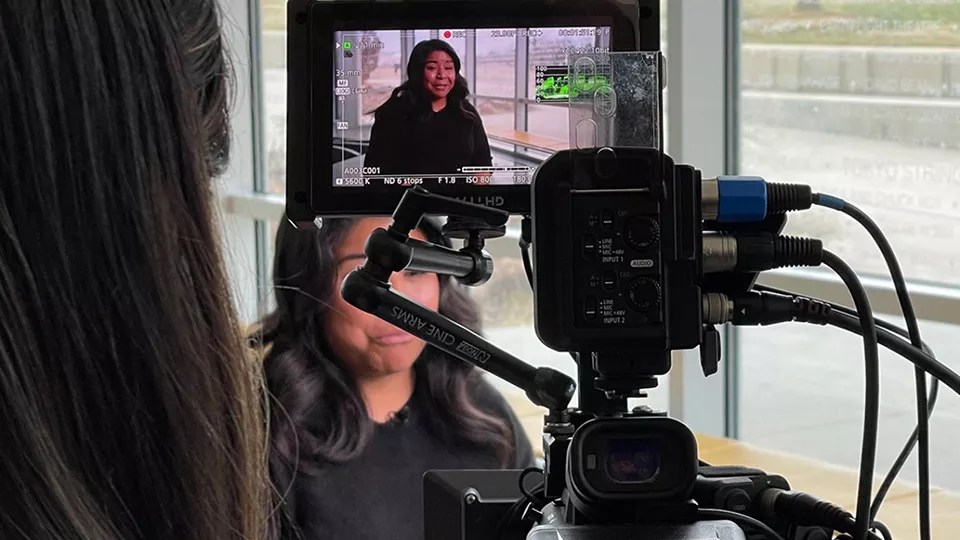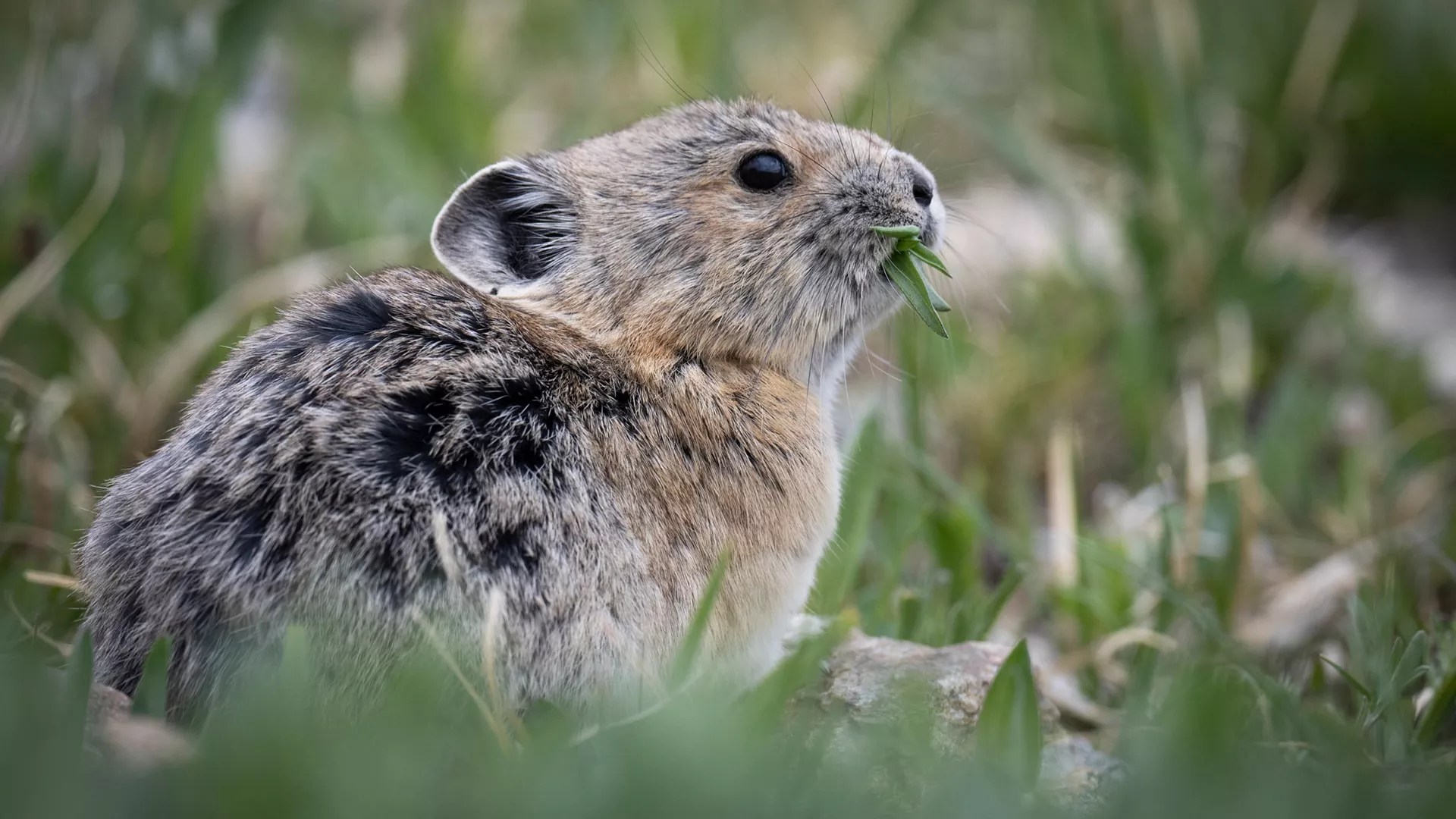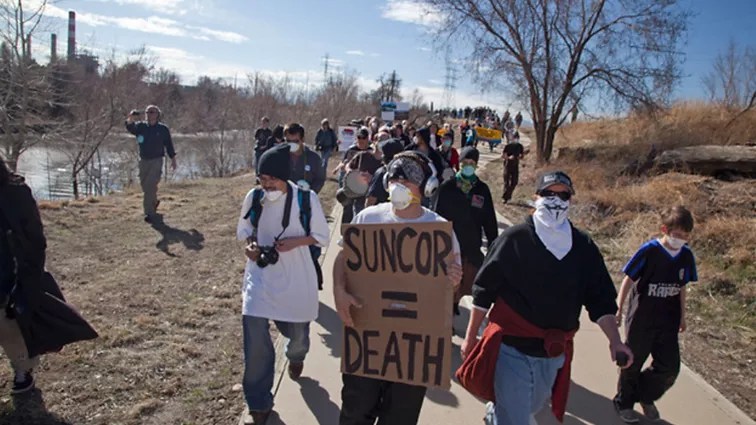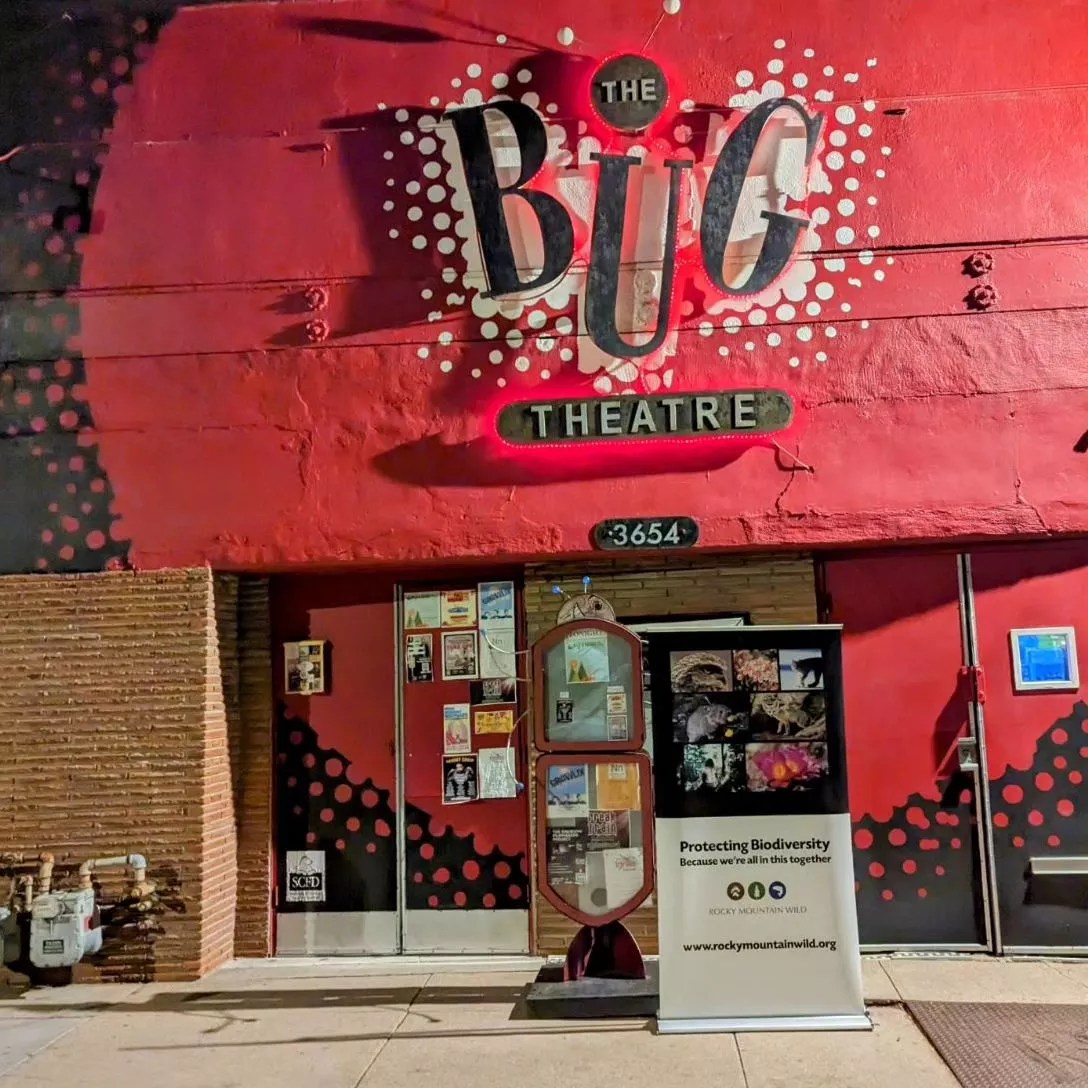
Courtesy of Carlos Malache

Audio By Carbonatix
“It’s the bees’ knees,” says Chris Talbot-Heindl of the Wild & Scenic Film Festival, which comes to Denver via Rocky Mountain Wild. “We’ve been a host of the world-tour stop in Denver for many years. … We love the film festival because of how it marries activism with art.”
The Rocky Mountain Wild team, for which Talbot-Heindl is communications director, has been working with the national film festival since 2010. And this year’s festival, held on Tuesday, November 19, at the Bug Theatre, will combine powerful storytelling with a call to protect our planet. As climate anxiety rises, the Wild & Scenic Festival emphasizes direct action, local voices and hands-on ways to make a difference.
“No matter what your comfort level or knowledge of environmental issues is, the Wild & Scenic Film Festival is for everyone,” Talbot-Heindl says. “The films don’t take such a lofty approach that you need a Ph.D. to understand the themes. The movies we have chosen are very accessible; you can enjoy them and take direct action regardless of your level of understanding.”

A still from the local film Calling All Pika Enthusiasts, which focuses on the Pika Patrol app.
Courtesy of Kristi Odom
Each screening is carefully curated to provide the audience with not only awareness but also actionable steps, such as assisting local nonprofits, contributing to community science, signing petitions or simply reconnecting with nature.
“It’s more tangible than other film festivals because it’s based on activism,” Talbot-Heindl says. “At the end of each film, you’ll receive information about how to get involved by going to this website. On top of that, we bring in local nonprofits to help connect our audience with them, allowing us to make the world a better place after viewing these films.”
And this year, the festival coincides with Rocky Mountain Wild’s 25th anniversary. The organization’s mission is to protect, connect and restore the wildlands and wildlife of the Southern Rockies, and this annual event underscores that goal. To commemorate the occasion, it is hosting a pre-show event across the street at Acova.
“25 years is a significant milestone, so we will be discussing what we have accomplished and, hopefully, reflecting on what we can accomplish in the next 25,” Talbot-Heindl says. “We’re going to have that dinner and talk at Avoca before but there isn’t going to be a huge tie-in at the film festival because we want it to focus on things like direct actions and the films at hand.”

Suncor Sundown, a local film about an oil refinery north of Denver, will screen at the Wild & Scenic Film Festival.
Courtesy of Cultivando, Spirit of the Sun and Womxn from the Mountain
This year’s lineup promises an eclectic mix of films, all carefully curated to address pressing environmental issues. Rather than focusing on a single overarching theme, the Wild & Scenic team has chosen four: Kids at Heart, Everyone Can Do Something, Innovation and Passion, and Indigenous Ways of Knowing and Being.
“Usually, every year I review all the films, and there’s like one outstanding theme where you’re like, ‘Yes, this is the one unifying theme,'” Talbot-Heindl says. “This is the theme for this year’s films, but this year there are so many good themes I don’t want to pick one. A lot of films have more than one, so I picked four themes because it still makes it a cohesive film festival.”
Among the nine featured films, three stand out as local projects that bring Denver’s unique conservation challenges to the screen. The first, Suncor Sundown, transports viewers to a neighborhood whose air is heavily polluted by the Suncor refinery, one of the state’s largest emitters of greenhouse gases and toxic pollutants that has repeatedly violated the Clean Air Act.
“There’s a lot of people in Denver who don’t know that Suncor exists not that far away and its impacts on the local community, which is a majority BIPOC individuals,” Talbot-Heindl says. “If you don’t know about something, you can’t join the fight against it, right? So, I feel like it’s important to let Denver know that this exists in Commerce City and that there’s like a local population that’s been fighting it for decades and they need help.”

Last year’s film festival was held for the first time at the Bug Theatre, and it will return this year.
Courtesy of Rocky Mountain Wild
Then there’s Elevating Voices, a collaboration between BIPOC students at Colorado State University and local filmmaking mentors. This short documentary looks at environmental conservation from their perspectives, contributing to the debate over who is visible – and who is absent – in mainstream environmental narratives.
“This is one of the three local films that weren’t part of the National Wild Scenic Film Festival, but I believe because queer and BIPOC communities get hit first and worse with environmental injustices, they have the best knowledge of how to solve those things,” Talbot-Heindl says. “But we have all these think tanks that are not asking the community, or are asking the community repeatedly but are not implementing what they have learned. The ‘for us, by us’ method of focusing on those affected to decide how to solve those issues is an effective way to approach problem-solving.”
Finally, Calling All Pika Enthusiasts presents a more interactive approach to climate science. This film invites viewers to join the Pika Patrol, an app that encourages people to track sightings of the tiny American pika. “That’s actually a program that Rocky Mountain Wild heads up,” Talbot-Heindl points out. The animals are sensitive to the warming climate, but by providing data to the organization’s team of community scientists, you will assist researchers in understanding how pikas are coping with climate change and determining how to best protect pikas and their habitat.
In addition to these local films, other highlights include Van vs. Vikas (Forest vs. Progress) about an Indigenous family’s fight to save India’s Aarey Forest from deforestation; Paddle Tribal Waters follows Indigenous youth learning to kayak on the Klamath River; Mussel Grubbing explores citizen science as viewers join the hunt for freshwater mussels; and 4DWN highlights a Dallas skatepark that’s changing lives with a unique community approach.
For those eager to participate, the Wild & Scenic Film Festival offers both in-person and virtual viewing options. On November 19, those at the Bug Theatre can enjoy an opening reception at 6:30 p.m. before diving into the main screenings. Meanwhile, virtual attendees can stream the films on demand through November 23.
“In my early twenties, I was immunocompromised, so I couldn’t go to things that I wanted to,” Talbot-Heindl says. “Having an online, virtual showing benefits people who may be immunocompromised or who are sick that day and decide, ‘I’m not going to make other people sick.’ I believe COVID has helped prioritize community care, which was previously lacking in events, and has caused everyone to consider how we can do this so that everyone can attend while remaining healthy and safe.”
Rocky Mountain Wild’s Community Action Hub adds to the festival’s impact by offering attendees direct-action opportunities through an online hub. A raffle and online auction provide additional opportunities to contribute, with items from eco-friendly brands and local businesses. All proceeds from these fundraisers benefit Rocky Mountain Wild’s ongoing conservation efforts.
“Our prizes come from green companies who have donated,” Talbot-Heindl says. “We try to get as many green organizations as possible to donate, and many of them are hyperlocal. It’s just to let our audience know that there are options out there to use their dollars to purchase greener-friendly items for the planet to help support our mission.”
Climate change can feel overwhelming, even hopeless at times. With fires, storms and species loss making headlines every day, it’s easy to believe that the problems are too big and that individual efforts won’t matter. But the Wild & Scenic Film Festival tells a different story. Through the voices of Indigenous leaders, citizen scientists and local activists, these films remind us that change is possible – starting right in our communities.
“My biggest advice would be to just stay in the mindset that you’re going to do everything that you can,” Talbot-Heindl says. “It’s easy to get into that doom place where you’re like, ‘There’s nothing I can do,’ and that’s just simply not the case. Stay in the space where your heartstrings are tugged, and find something to act on. It could be something seemingly unrelated, but it benefits your local community. Just stay open and positive; there are always things you can do.”
Wild & Scenic Film Festival, Tuesday, November 19, Bug Theatre, 3654 Navajo Street. Tickets are $6 to $18; individual virtual tickets are $12, $45 for four or more people, or $100 for a group watch party. Learn more at rockymountainwild.org.